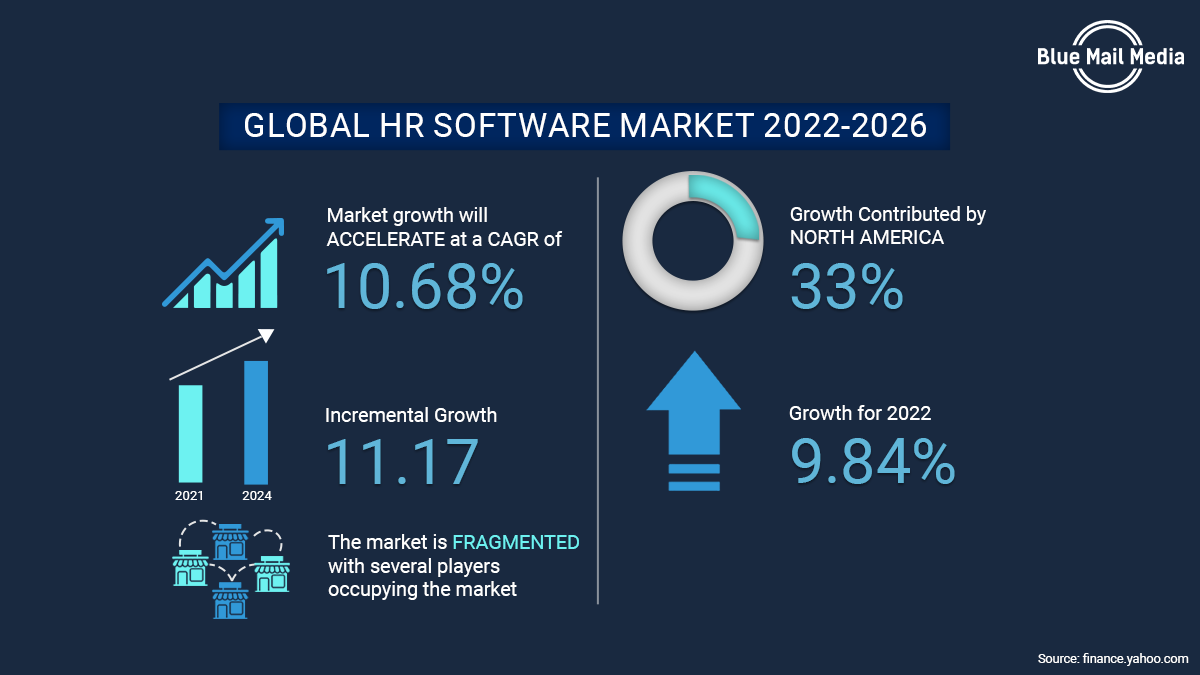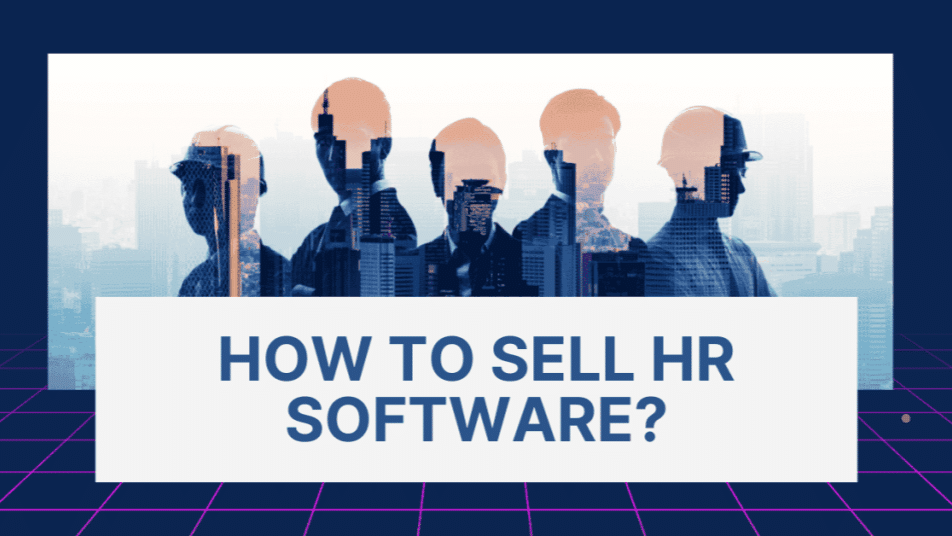Selling HR software can be challenging but rewarding. To succeed, you need a clear strategy.
In this post, we’ll explore effective methods to sell HR software. HR software is essential for modern businesses. It streamlines processes, saves time, and enhances productivity. But, reaching the right audience and convincing them to buy is crucial. You must understand your target market and their needs.
Highlight the unique features of your software and show how it solves their problems. Use testimonials and case studies to build trust. Tailored demos and free trials can also help. With the right approach, you can effectively sell HR software and grow your business.

Credit: www.bluemailmedia.com
Identifying Target Audience
When it comes to selling HR software, understanding who your target audience is can make all the difference. Knowing your potential customers’ needs and preferences allows you to tailor your messaging effectively. Let’s dive into how you can identify and segment your audience for better results.
Industry Segmentation
Start by breaking down your target market into specific industries. Different industries have unique HR needs and challenges. For instance, a healthcare facility might prioritize compliance and shift scheduling, while a tech company might focus on employee engagement and remote work tools.
Consider creating a list of industries that could benefit from your HR software. Research each industry’s specific HR requirements. This will help you create targeted marketing campaigns that speak directly to their needs.
Understanding Pain Points
Once you’ve segmented your audience by industry, dig deeper into their pain points. What HR challenges are they facing? Are they struggling with high turnover rates, compliance issues, or inefficient processes?
Understanding these pain points allows you to position your software as the solution to their problems. If you can address their specific challenges, your product will seem much more appealing.
Imagine you’re talking to an HR manager. They’re overwhelmed with manual processes and compliance headaches. How much easier would their job be with automation and built-in compliance checks? Your messaging should make this clear.
Engage your audience by asking questions. “Are you tired of spending countless hours on manual HR tasks? Our software can help.” This not only captures attention but also makes the reader feel understood.
By identifying your target audience and understanding their unique needs, you can create a compelling narrative that resonates. This approach not only boosts your chances of making a sale but also builds trust and credibility with your potential customers.

Credit: www.close.com
Creating A Compelling Value Proposition
Highlight the unique benefits of your HR software. Focus on how it saves time, reduces errors, and improves efficiency. Make it clear why your solution is the best choice for their needs.
Creating a compelling value proposition for your HR software can be the difference between making a sale and losing a prospect. A strong value proposition clearly communicates the unique benefits and advantages of your product. This is where you need to shine, showcasing why your HR software is the best solution for potential customers. Let’s break it down into actionable steps.Unique Selling Points
Your HR software must stand out. Identify and highlight the unique features that differentiate your product from competitors. Does your software offer advanced analytics or seamless integration with existing systems? Pinpoint these aspects and make them the centerpiece of your pitch. Emphasize benefits like time-saving automation or enhanced employee engagement. These are what potential customers care about.Customer Testimonials
Real-world success stories can be incredibly persuasive. Share testimonials from satisfied customers who have seen tangible benefits from using your HR software. Did a client reduce onboarding time by 50% thanks to your product? Make sure to include such specific examples. Quotes from happy users build credibility and trust. They show that your software delivers on its promises. Creating a compelling value proposition is about demonstrating clear benefits, standing out from the competition, and building trust through real customer experiences. Take these steps, and you’ll be well on your way to selling your HR software effectively. What unique features of your HR software are you highlighting to potential customers?Leveraging Digital Marketing
Leveraging digital marketing can significantly boost your efforts to sell HR software. It’s not just about being online; it’s about being smart online. Let’s dive into some key strategies.
Seo And Sem
Search Engine Optimization (SEO) and Search Engine Marketing (SEM) are your best friends. Start with SEO. Optimize your website with relevant keywords that your potential customers are searching for. Use tools like Google Keyword Planner to find the right terms.
Next, focus on SEM. Running paid ads on Google can get your software in front of a larger audience. Create compelling ad copy that highlights the unique benefits of your HR software. Make sure to track the performance of your campaigns and adjust them as needed.
Social Media Campaigns
Social media is a powerful tool for selling HR software. Platforms like LinkedIn and Twitter are great for reaching HR professionals. Share engaging content such as case studies, user testimonials, and demo videos.
Running targeted ad campaigns on these platforms can also be effective. Use LinkedIn Ads to target HR managers and business owners. Make your ads visually appealing and concise. Engage with your audience by responding to comments and questions promptly.
Have you ever wondered why some posts go viral? It’s often because they touch on a pain point or provide a valuable solution. Think about how your HR software solves common HR problems. Use this angle in your posts to attract attention.
Lastly, consistency is key. Regularly update your social media profiles and maintain a consistent posting schedule. Over time, this builds trust and keeps your software top-of-mind for potential buyers.
Building A Strong Sales Team
Building a strong sales team is crucial when selling HR software. Your sales team is the face of your company. They need to understand the product deeply and be able to convey its benefits effectively.
Training And Development
Effective training is the backbone of a strong sales team. Regular workshops and role-playing exercises can make a significant difference. Equip your team with in-depth knowledge about the HR software, its features, and its unique selling points.
Encourage continuous learning. Offer online courses or webinars that focus on industry trends and new sales techniques. This helps your team stay ahead of the competition.
Personal story: I once had a team member who struggled with closing deals. After attending a series of negotiation workshops, he became one of our top performers. This proves that targeted training can turn potential into success.
Performance Metrics
Tracking performance is essential. Set clear, achievable goals for your sales team. Use metrics like the number of calls made, meetings scheduled, and deals closed to monitor their progress.
Provide regular feedback. This helps your team understand what they are doing well and where they can improve. Celebrate small wins to keep morale high.
Ask yourself: Are your current metrics aligned with your sales objectives? If not, it might be time to rethink your strategy.
A strong sales team doesn’t just happen. It requires ongoing training, clear metrics, and continuous support. Invest in your team, and they will invest in your success.
Utilizing Content Marketing
Utilizing content marketing can greatly enhance your efforts to sell HR software. This approach involves creating valuable content that attracts, engages, and converts your target audience. Let’s explore some effective content marketing strategies.
Blog Posts And Articles
Regularly publishing blog posts and articles can establish your expertise. Write about common HR challenges and how your software solves them. Share case studies and success stories. Use keywords related to HR software to improve search engine rankings. Ensure your content is clear and easy to understand.
Webinars And Podcasts
Hosting webinars and podcasts allows you to reach a wider audience. Discuss topics relevant to HR professionals. Invite industry experts to share insights. Demonstrate your HR software’s features and benefits. Make recordings available on your website for on-demand viewing.
Crafting Effective Sales Pitches
Crafting effective sales pitches is crucial for selling HR software. A strong pitch helps potential clients understand the benefits of your software. It also makes your product stand out in a crowded market. Focus on clarity, benefits, and real-world applications.
Elevator Pitch
Your elevator pitch is a brief, engaging summary of your HR software. It should capture attention within 30 seconds. Highlight the main benefits and unique features of your product. For example, say, “Our HR software simplifies employee management and boosts productivity.” Keep it short and to the point. Use plain language that is easy to understand. Avoid technical jargon and complex terms.
Product Demos
Product demos allow potential clients to see your HR software in action. Demonstrations should be interactive and engaging. Show how the software solves common HR problems. Highlight features like automated payroll, attendance tracking, and performance reviews. Use real-life scenarios to make it relatable. Encourage questions and provide clear, concise answers. A well-executed demo can significantly boost interest and sales.
Implementing Customer Retention Strategies
Implementing customer retention strategies is crucial for selling HR software effectively. Retaining customers not only builds long-term relationships but also ensures a steady revenue stream. By focusing on follow-up processes and loyalty programs, you can keep your customers satisfied and engaged.
Follow-up Processes
Establishing a robust follow-up process helps maintain communication with your customers. Regular check-ins show that you care about their experience and are willing to address any concerns. Schedule periodic calls or emails to gather feedback and provide updates on new features or improvements.
Personalize your follow-ups to make customers feel valued. Use their name and reference specific interactions or feedback. This attention to detail can make a big difference in how your customers perceive your service.
Automate some aspects of your follow-up process using CRM tools. This ensures that no customer is forgotten and helps you stay organized. However, balance automation with personal touches to maintain authenticity.
Loyalty Programs
Loyalty programs incentivize customers to continue using your HR software. Offer rewards for milestones such as long-term usage or referrals. This not only encourages continued use but also promotes word-of-mouth marketing.
Design your loyalty program to be simple and easy to understand. Customers should know exactly what they need to do to earn rewards and how to redeem them. Clear communication is key to a successful loyalty program.
Consider offering exclusive features or early access to new updates as part of your loyalty program. This makes customers feel special and valued. Additionally, provide personalized offers based on their usage patterns to make the rewards even more appealing.
What strategies do you currently use to retain your customers? Reflect on your approach and think about how you can enhance it using follow-up processes and loyalty programs.
Analyzing Sales Data
Analyzing sales data is crucial for selling HR software effectively. It helps you understand what works and what doesn’t. By reviewing data, you can make informed decisions. This leads to better sales strategies and more satisfied customers. Let’s dive into the key aspects of analyzing sales data.
Key Performance Indicators
Key Performance Indicators, or KPIs, are vital. They help you measure success. Common KPIs include sales revenue, conversion rates, and customer acquisition costs. Tracking these metrics provides insights into your sales process. This helps you identify areas for improvement. Regularly review your KPIs to stay on track.
Another important KPI is the average deal size. This shows the typical value of your sales. High average deal sizes indicate strong sales performance. Low average deal sizes may suggest the need for better sales tactics. Keep an eye on this metric to understand your sales efficiency.
Market Trends
Understanding market trends is essential. It allows you to adapt your sales strategies. Look for patterns in the HR software market. Are there new features in demand? Are competitors launching new products? Stay updated on these trends to stay competitive.
Market trends can also reveal customer preferences. For instance, if remote work tools are in demand, highlight these features in your HR software. By aligning your product with market needs, you can attract more customers. Always be aware of shifts in the market landscape.

Credit: theygotacquired.com
Frequently Asked Questions
How To Sell Hr Tech?
To sell HR tech, identify target audience, highlight benefits, provide demos, offer free trials, and showcase customer testimonials. Engage on social media, attend industry events, and use content marketing to build trust and drive sales.
How Much Does Hr Software Cost?
HR software costs vary based on features and company size. Prices range from $5 to $20 per user monthly.
How To Sell Hr Solutions?
Identify target clients, understand their needs, and showcase your HR solutions’ benefits. Offer free trials, provide excellent customer service, and highlight success stories. Utilize digital marketing to reach a wider audience.
How To Sell Hr Outsourcing Services?
Highlight cost savings and efficiency. Showcase expertise and industry knowledge. Offer tailored solutions. Provide case studies and testimonials. Promote flexibility and scalability.
Conclusion
Selling HR software requires strategic planning. Understand your target audience’s needs. Offer clear benefits and solutions. Build trust through testimonials and case studies. Provide excellent customer support. Use social media to engage potential clients. Keep your messaging simple and direct.
Highlight key features. Demonstrate how your software solves problems. Invest in SEO to attract traffic. With the right approach, you can successfully sell HR software. Focus on value and service. Stay consistent and patient. Results will follow.

